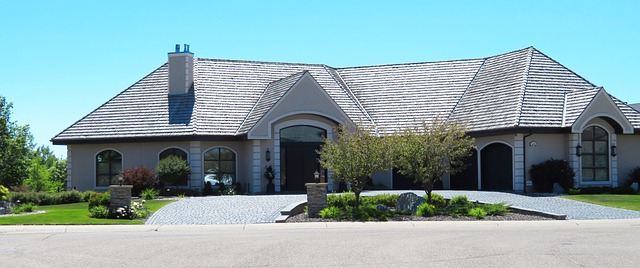The Executive Condominium (EC) market in Singapore offers a housing solution that blends affordability with condominium luxury for couples and families. Prospective EC buyers should monitor trends in EC pricing, influenced by factors like eligibility criteria, location desirability, development size, economic conditions, and government policies. These trends are further shaped by demographic shifts such as population growth and mortgage rates, as well as the impact of the Minimum Occupation Period (MOP) on resale values. EC prices in prime districts can be significantly higher due to better amenities and connectivity. The 'Ec Price Singapore' reflects these dynamics, with new projects affecting pricing through market competition. Buyers must consider official pricing channels, financial planning, and the benefits of HDB loans and CPF housing grants when investing in an EC, keeping in mind additional expenses post-purchase. Understanding the EC price landscape is crucial for a strategic investment, considering the potential for long-term appreciation comparable to private condos, making it a viable alternative for many within Singapore's property market.
navigating the property market in Singapore reveals a unique segment catered to aspiring homeowners: the Executive Condominium (EC). This article delves into the intricacies of EC pricing trends, eligibility criteria, and the various factors influencing their cost within the city-state. Whether you’re considering an EC as your first home or looking to upgrade from a resale flat, understanding the EC price dynamics in Singapore is paramount. We explore the specific conditions under which one qualifies for an EC, the effects of the minimum occupation period (MOP) on resale values, and how these factors compare to private condominiums. With insights into regional price disparities and practical strategies for budgeting and financing, this comprehensive guide addresses the key aspects of EC pricing in Singapore, ensuring prospective buyers make informed decisions.
- Understanding Executive Condominium (EC) Pricing Trends in Singapore
- The Criteria for EC Eligibility: Who Can Apply in Singapore
- The Five-Year MOP and Its Impact on Resale EC Prices in Singapore
- EC vs Private Condo: A Comparative Analysis of Pricing in Singapore
- Factors Influencing EC Prices in Different Regions of Singapore
- Strategies for Budgeting and Financing Your EC Purchase in Singapore
Understanding Executive Condominium (EC) Pricing Trends in Singapore

In Singapore, the Executive Condominium (EC) market offers a unique housing option for couples and families looking for a balance between affordability and the benefits of condominium living. Prospective buyers interested in EC pricing trends should consider the evolving eligibility criteria and the impact of these changes on resale values. Over recent years, EC prices in Singapore have shown a consistent upward trend, reflecting both the increasing desirability of such units and the general inflation in property markets. Factors influencing EC prices include government policies, location desirability, development size, and the overall economic climate. For instance, the introduction of newer EC projects can affect pricing as developers aim to stay competitive. To navigate the EC price landscape in Singapore effectively, it’s advisable to monitor the launch prices of new ECs, the average transacted prices of resale units, and how these figures correlate with broader market movements. This approach allows potential buyers to make more informed decisions when considering an investment in an EC unit, given the unique characteristics of the Singaporean property market, particularly for those who meet the eligibility criteria for EC purchase.
Understanding the nuances of EC pricing also involves recognizing the influence of market sentiment and demographic shifts. The demand for ECs is often driven by young couples and families looking for a stepping stone to a full private condominium, which they are eligible for after meeting the minimum occupation period. As such, trends in EC prices can be sensitive to changes in population growth, mortgage rates, and the availability of financing options. Additionally, the location of these developments plays a significant role; prime districts with better amenities and connectivity tend to command higher prices. Investors and homebuyers should keep abreast of EC price trends in Singapore by analyzing recent transactions, government releases on housing policies, and market forecasts from real estate experts. By leveraging this information, one can gain a comprehensive understanding of the ec price dynamics in Singapore’s property market.
The Criteria for EC Eligibility: Who Can Apply in Singapore

In Singapore, the Executive Condominium (EC) scheme offers a unique blend of public and private housing options for couples looking to upgrade from a Housing & Development Board (HDB) flat. Prospective applicants must meet specific eligibility criteria to qualify for an EC. As per the latest regulations, both applicants must be Singapore citizens, and at least one must not currently own any residential property or have disposed of a flat within the past 30 months. Couples interested in ECs must also earn a combined monthly income of not more than SGD14,000 for those who apply with effect from February 2022 onwards. This income ceiling is set to ensure that ECs cater to middle-income families. The EC Price Singapore can vary significantly depending on factors such as location, development stage, and market demand. Interested parties can find the most current pricing on newly launched or available EC units through official channels or real estate platforms listing such properties. It’s advisable for potential buyers to consider their financial planning carefully, as EC prices are designed to be within reach for those looking to progress from a public to a private housing estate while benefiting from the subsidy and provisions of the EC scheme.
The Five-Year MOP and Its Impact on Resale EC Prices in Singapore

In Singapore, the resale Executive Condominium (EC) prices are influenced by several factors, with the five-year Minimum Occupation Period (MOP) being a pivotal one. Upon completion of the MOP, EC residents have the option to sell their units in the open market. The completion of this period typically sees an uptick in resale prices, as these units transition from being public housing to private property. This shift can significantly impact the EC price trends in Singapore, with post-MOP units often commanding higher prices due to their increased versatility for homeowners. Prospective buyers take into account the value addition that occurs after the MOP, which can enhance the EC’s marketability and desirability, thus influencing the ec price singapore within the resale market.
Moreover, the impact of the MOP on resale EC prices is not uniform across all regions or unit types. Factors such as location, unit size, amenities, and the overall condition of the property play crucial roles in determining the market value post-MOP. Buyers typically assess these factors alongside the remaining lease, the condition of the development, and the broader economic climate to make informed decisions on resale EC prices. This dynamic interplay of factors underscores the complexity of pricing in the resale EC market and highlights the importance of a comprehensive understanding of the property’s attributes and market trends when considering ec price singapore.
EC vs Private Condo: A Comparative Analysis of Pricing in Singapore

In Singapore, discerning between an Executive Condominium (EC) and a private condominium often hinges on understanding their distinct market positions and pricing structures. Prospective homeowners considering EC price trends in Singapore will find that ECs offer a middle-ground option compared to the more expensive private condos. This is reflective of their eligibility criteria, which cater to a broader range of applicants, including younger couples who do not necessarily meet the income ceiling for a public housing flat but are aspiring to upgrade from HDB flats. Typically, ECs are initially sold at lower prices than private condos, making them an attractive option for those seeking affordable luxury. Over time, as these properties mature and the lease decays, the price gap between ECs and private condos may narrow. However, during the initial launch phase, ECs in prime locations or with sought-after amenities can often be priced on par with comparable private condos, especially if they are part of a newer development or situated in desirable areas like Sengkang, Tampines, or Woodlands.
It’s also worth considering the long-term investment potential when comparing EC vs Private Condo prices in Singapore. While ECs come with a resale restriction after 10 years, during which they cannot be sold to non-citizens, their initial affordability can lead to substantial capital gains for owners who comply with these regulations. The pricing of both ECs and private condos can fluctuate based on market demand, economic conditions, and the unique offerings of each development. EC price trends in Singapore suggest that, while they may start at a lower price point, the long-term appreciation potential can rival that of their private counterparts, making them a strategic investment for many homeowners looking to ec price singapore into the property market.
Factors Influencing EC Prices in Different Regions of Singapore

The prices of Executive Condos (ECs) in Singapore are influenced by a multitude of factors that reflect both market dynamics and regional considerations. One key determinant affecting EC prices is the location of the development. Situated near mature estates or within regions with high demand, such as close proximity to city centers like Tampines or Sengkang, ECs tend to command higher prices due to their accessibility and convenience. Additionally, the age of the EC also plays a role; newer launches often come with updated features and amenities that can drive up prices compared to older units. The supply of ECs in a particular region, coupled with the demand from eligible applicants, including singles, couples without children, and families looking for an affordable alternative to public housing, further impacts pricing. Government policies, such as the timing of the release of new EC sites and the adjustment of loan-to-value (LTV) ratios, can also sway EC prices in different regions of Singapore. Investors’ sentiment and economic outlook, along with the overall property market trends, further influence the EC price landscape in Singapore. Prospective buyers considering an EC Price Singapore should thus take into account these factors when assessing the value and potential investment return of an Executive Condo unit in their preferred region.
Strategies for Budgeting and Financing Your EC Purchase in Singapore

When considering the purchase of an Executive Condominium (EC) in Singapore, prudent budgeting and financing strategies are paramount to ensure a sustainable investment. Prospective buyers should first familiarize themselves with the current EC prices in Singapore, as these can vary significantly based on location, development, and market conditions. It’s advisable to conduct thorough research on ‘Ec Price Singapore’ to understand the price range you might be looking at. A key step in this process is to assess your financial situation honestly, taking into account your monthly income, existing financial obligations, and savings. This will help determine your budget for the down payment and monthly mortgage repayments post-purchase.
Financing options in Singapore are robust, with various bank loans and HDB loans available to EC buyers. The latter often comes with favorable interest rates and loan-to-value ratios that cater specifically to public housing, making them an attractive option for many. Additionally, the CPF (Central Provident Fund) housing grant can be utilized to offset part of the purchase price, further easing the financial load. Prospective EC owners should also consider the additional costs associated with owning a property, such as maintenance fees and potential future renovations. By carefully planning your finances and exploring all available options, you can navigate the ‘Ec Price Singapore’ landscape effectively and secure a property that meets both your needs and budget.
navigating the nuances of Executive Condominium (EC) eligibility and pricing in Singapore is essential for prospective homeowners. This article has shed light on the dynamic trends in EC pricing, the specific criteria required to apply for an EC, the impact of the five-year Minimum Occupation Period (MOP) on resale prices, and a detailed comparison with private condos. Additionally, we explored how regional differences affect EC prices and provided strategic financial advice for those considering purchasing an EC. For individuals interested in the affordability and benefits that ECs offer, understanding these factors is crucial to making informed decisions. As the property landscape evolves, staying abreast of ec price trends and eligibility criteria remains key for investors and first-time homebuyers alike. Prospective buyers should closely examine the market and their financial standing before proceeding with an EC purchase in Singapore.



